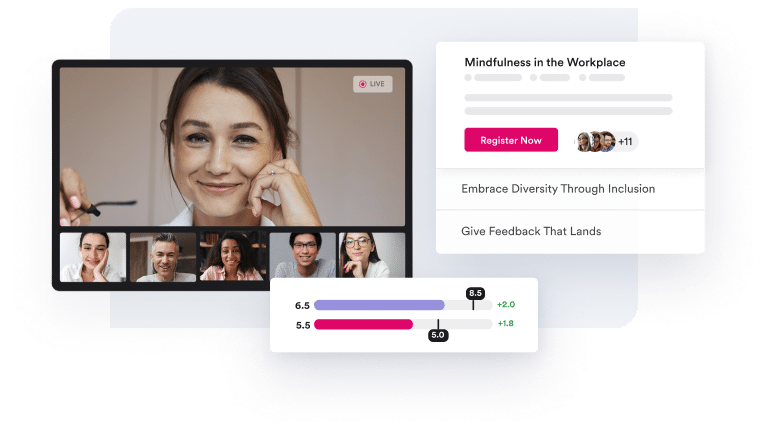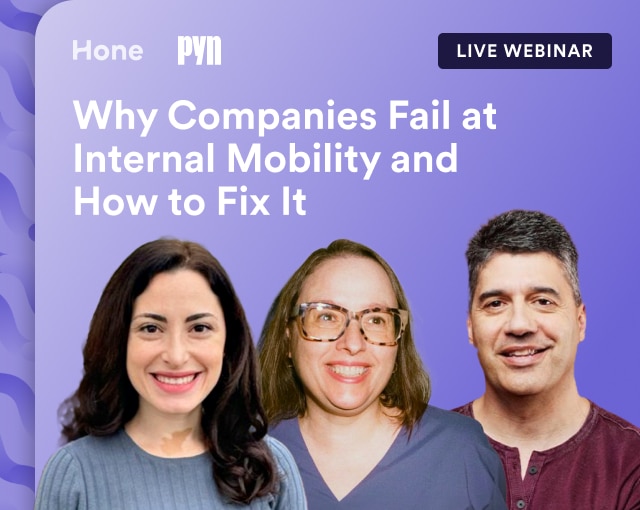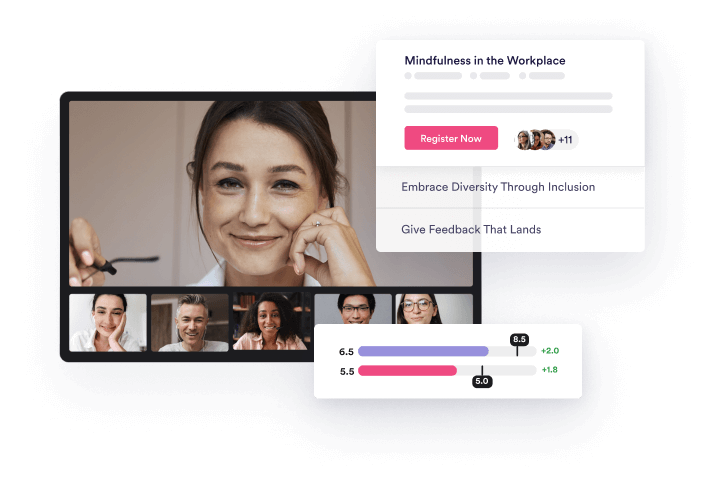Let’s talk about a lever that can make all the difference in recruiting: interview training. Training isn’t just something you do to onboard new hires or level up your current team. It’s a game-changer for your recruitment efforts.
Your interviewers are your superheroes. They sift through resumes, conduct interviews, and make tough decisions. However, interviewing is a skill that needs to be honed. By providing training to your interviewers, you’re equipping them with the proper set of skills and knowledge to ask the right questions and find the right people. Here are four reasons why interview training is so essential.
1. Asking the Right Questions
You know that feeling when you’re in an interview, and the questions just fall flat? It’s awkward, uncomfortable, and different from the impression you want to create. But with proper interview training, your interviewers can become pros in asking the right questions to help them assess candidates.
Through training, your interviewers can learn to ask open-ended questions that elicit thoughtful responses. In addition, they’ll learn to dig deeper and uncover valuable insights about candidates’ skills, experiences, and cultural fit. By knowing what to ask and how to ask, your interviewers can paint a more accurate picture of each candidate and make informed decisions.
Ask, who are you interviewing?
It’s essential to think about this person as an individual. Start the interview with easy questions to make them feel comfortable and get to know who they are in relation to this role’s needs. Try to discover what is important to them. The classic “Tell me about yourself” is a great start. Here are a few other interview questions.
- When have you felt most excited about a company or job?
- What motivates you to work?
- When do you typically find yourself ready to look for a new job?
- Tell me about a manage/management style you enjoyed.
2. Finding the Right Fit
Cultural fit is imperative when it comes to building a dream team. It’s not just about having the right skills; it’s about finding candidates who align with your company values and thrive in your unique work environment.
Your interviewers can learn how to assess cultural fit through interview training effectively. They’ll be armed with questions that help them understand candidates’ work styles, motivations, and values. This ensures that the people you bring on board have the skills and mesh well with your team and your company’s vibe.
Why do you think they would be a good fit?
We cover the role-specific skills in the “how,” but we can’t forget about the culture add, ethics, and working style. Ask questions that assess whether they are a good culture add, if they work well in remote or in-office settings, and why they want the job. Their answers must align with your expectations, or you could set them up for failure. Here are a few interview questions.
- Do you find any challenges working in a remote setting?
- Tell me about a time when you had to demonstrate (insert company value).
- Which one of our value props do you resonate with most? What was a time you had to demonstrate that at work?
- What is an example of when you had to resolve conflict at work?
- Do you prefer team projects or individual work?
- Do you feel comfortable working in:
- A fast-paced environment
- An environment with strict compliance and regulatory needs
- A company with team members located internationally
- A role with little oversight/structure?
3. Creating a Positive Candidate Experience
Remember, interviews aren’t just about finding the right people; they’re also an opportunity for candidates to get a taste of what it’s like to work at your company. Therefore, the interview experience can make or break their decision to join your team.
With proper interview training, your interviewers will learn how to create a positive and engaging interview experience. They’ll be skilled in active listening, making candidates comfortable, and fostering a two-way conversation. By leaving candidates with a positive impression, even if they don’t get the job, you’ll build a reputation as an employer that respects and values its candidates.
Interviewing should be a conversation with the candidate, so remember to give them ample time to think while guiding them through the questions. When you need to, probe for clarity to ensure you get the essential details you were looking for in the question. Although it might feel invasive, candidates want to ensure they answered your questions thoroughly and correctly.
It is also essential to time your interview correctly. You can’t predict how long answers might be or if the candidate wants to chat a bit before starting. To ensure they have time to ask their questions, pick a must-have question from each category and save the rest for if you happen to have extra time at the end of the interview. If you’re interviewing in panels, make sure team members aren’t asking the same questions so you can get more answers!

4. Making Informed Hiring Decisions
The goal of the recruitment process is to make informed hiring decisions. You want to bring on board candidates with the right skills who fit your company culture and can contribute to your team’s success.
How would they perform in this role?
Come to the interview prepared with specific questions to ensure they know how to do the job. Work with the hiring manager to craft questions that require examples: tell me about a time when, describe a moment when, etc. It might sound obvious, but make sure they can handle the day-to-day tasks. Here are a few interview questions.
- What was a time you saw a problem and took the initiative to fix it rather than waiting on someone else to do it?
- Tell me when you had to {insert difficulty/challenge specific to role}.
- Are you familiar with {insert specific platform used}? Have you used this platform before?
Through interview training, you empower your interviewers with the necessary skills and knowledge to assess candidates effectively. As a result, they’ll be able to ask the right questions, evaluate responses, and ultimately make informed decisions. This reduces the chances of hiring the wrong person and increases the likelihood of finding the best fit for your organization.
L&D’s Investment in Interview Training is Essential
In the world of recruitment, interview training for your learning and development team is more than just a mere investment. It’s the game-changer that can revolutionize your entire approach. You’re unlocking your team’s new superpower by empowering your interviewers with the skills to ask the right questions, identify the perfect candidates, create exceptional candidate experiences, and make informed hiring decisions. Don’t underestimate the transformative potential of training. It’s the secret sauce that propels your recruitment game to the next level, opening doors to exceptional talent and paving the way for unparalleled success. So, gear up, invest wisely, and watch as your team becomes the driving force behind your company’s growth and prosperity.








